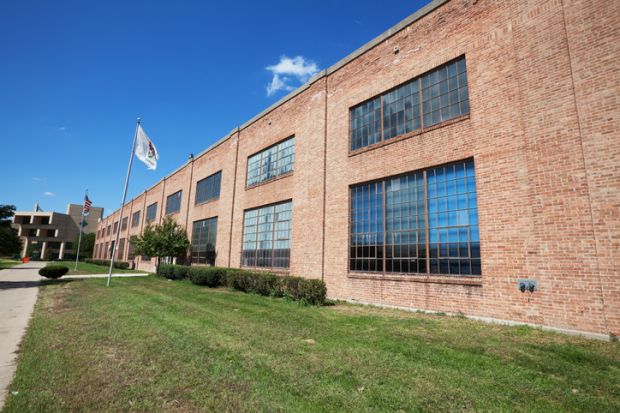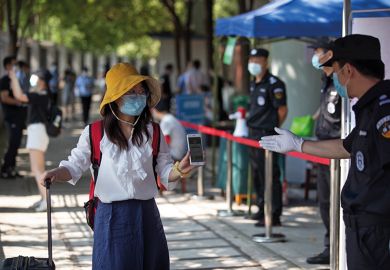Chicago State University has agreed to pay $650,000 (£510,000) to settle a four-year legal battle with two academics who published a blog critical of the institution’s leadership.
The researchers, Robert Bionaz and Phillip Beverly, had accused the university of repeated attempts to silence their decade-old blog, CSU Faculty Voice. The blog had been especially critical of a former CSU president, Wayne Watson, during a time of rapidly declining enrolment.
Dr Beverly, an associate professor of political science, suggested that CSU’s new president, Zaldwaynaka Scott, helped conclude the case. “I’m hopeful that the current administration that had to clean this mess up learns not to create messes like this in the future,” Professor Beverly told the Chicago Tribune.
The settlement is part of a growing trend towards US colleges backing off from policies that restrict free speech, according to the Foundation for Individual Rights in Education, an advocacy group that helped Dr Bionaz and Dr Beverly bring their case.
The foundation has brought a series of legal cases against universities, so far counting 13 victories and $2 million in settlements and awards. The case involving CSU was one of four it announced in 2014 to inaugurate a “Stand Up For Speech Litigation Project”. Fire earlier reported a court judgment and two settlements in the other three cases.
At CSU, the two academics were highlighting allegations of mismanagement and corruption on an urban campus struggling to serve a student population that is mostly black and low-income, many of them adults with children. Its reported enrolment is now down below 3,000 students, from more than 7,000 in 2010. Dr Bionaz retired last year from CSU, after serving as an associate professor of history.
His lawsuit with Dr Beverly accused CSU of trying to silence critics with a cyber-bullying policy that forbade “any communication which tends to embarrass or humiliate”. As part of the settlement, that policy will be revised, and CSU will provide employee training in alternative practices.
Fire was founded 20 years ago by conservative funders, but has represented plaintiffs with a variety of political perspectives in its bid to promote open dialogue on college campuses. “Many policy changes are made by working cooperatively with schools,” said a spokesman for Fire, Daniel Burnett. “Litigation is not our first course of action.”




